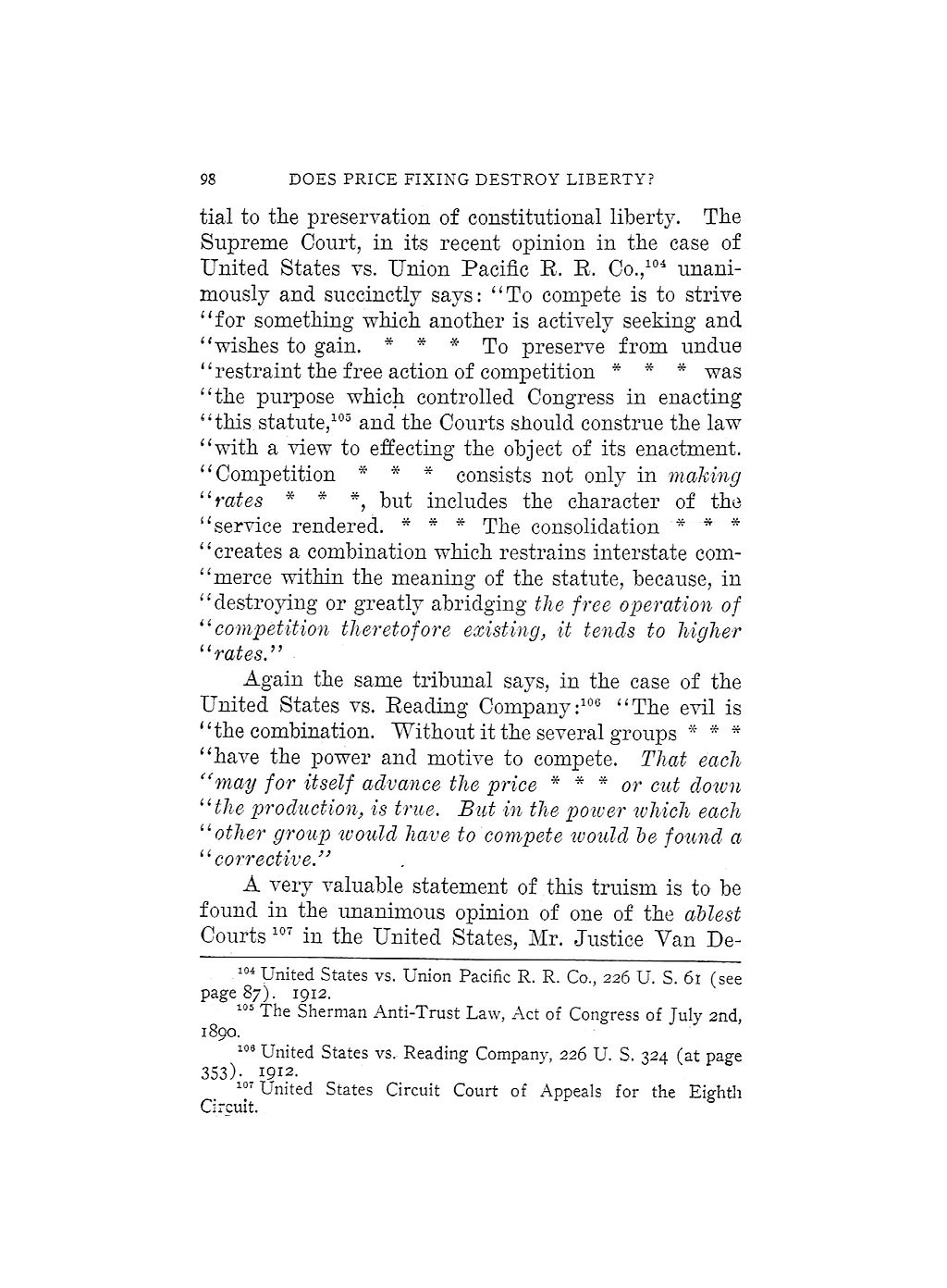tial to the preservation of constitutional liberty. The Supreme Court, in its recent opinion in the case of United States vs. Union Pacific R. R. Co.,[1] unanimously and succinctly says: "To compete is to strive for something which another is actively seeking and wishes to gain. * * * To preserve from undue restraint the free action of competition * * * was the purpose which controlled Congress in enacting this statute,[2] and the Courts should construe the law with a view to effecting the object of its enactment. Competition * * * consists not only in making rates * * * , but includes the character of the service rendered. * * * The consolidation * * * creates a combination which restrains interstate commerce within the meaning of the statute, because, in destroying or greatly abridging the free operation of competition theretofore existing, it tends to higher rates."
Again the same tribunal says, in the case of the United States vs. Reading Company:[3] "The evil is the combination. Without it the several groups * * * have the power and motive to compete. That each may for itself advance the price * * * or cut down the production, is true. But in the power which each other group would have to compete would be found a corrective."
A very valuable statement of this truism is to be found in the unanimous opinion of one of the ablest Courts[4] in the United States, Mr. Justice Van De-
